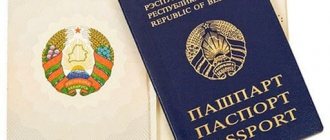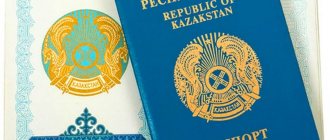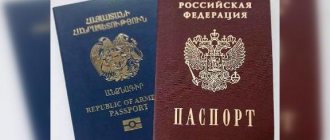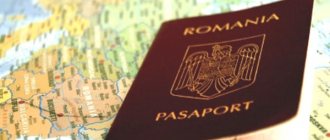Since the second half of the twentieth century, migration processes have acquired a truly global scale, covering all continents of the planet. It doesn’t matter what the reason was - the search for a better life, the desire to realize oneself professionally, or flight from a warring country. Migrants often take citizenship of a foreign country in order to legally reside in it and enjoy all the privileges on an equal basis with its citizens. Changing citizenship is a long process, and information awareness on this issue will help to significantly facilitate and reduce the time required for its implementation.
What is a change of citizenship?
The concept of citizenship has long been rooted in the world, but not everyone can fully explain what it means. Today, the terms “citizenship” or nationality, which is typical for a monarchical form of government, imply that a person belongs to any state.
The relationship between them is expressed in mutual compliance with obligations: the state guarantees its citizen (subject) all the rights and freedoms prescribed in the Constitution, and the citizen (subject), in turn, undertakes to fulfill his duties to the state and comply with all its laws and orders.
Changing citizenship implies a kind of transition: leaving the citizenship of one country and becoming a citizen of another. Thus, when changing citizenship, on the one hand, a person is released from obligations to one state, on the other hand, he undertakes to comply with all the laws and rules of another.
Many countries do not support the institution of dual citizenship, some have entered into similar agreements, but often when obtaining a new citizenship you need to renounce your existing one.
Read more about how Russian citizenship is terminated.
What could be the reasons?
Changing your civil status is considered a serious decision. It must be taken thoughtfully. A person can make an appropriate decision due to a whole list of reasons.
| Cause | Explanation |
| Marriage. | While traveling around the world or working in another country, a person may meet a soul mate. When the relationship becomes official, you have to choose a place to live. If the spouses decide to stay in the same country, the husband or wife will have to change their citizenship. |
| Work abroad. | Having found a good place of official employment, a migrant often decides to move to the state for permanent residence. This allows them to provide a decent standard of living for themselves and their loved ones. Citizenship is required in order to enjoy all the rights and freedoms of the chosen country. It is necessary that the migrant does not commit an offense while in the state and strictly adheres to the established regime. Then there is a chance for the application to be approved. |
| There are territorial changes in the borders of the state. | The reasons do not depend on the person’s desire and do not require changing his place of residence. In the modern world, state boundaries change quite rarely. However, it still happens. In such cases, residents of the territory will have to choose which state they want to obtain citizenship of. You need to legalize your stay in the country as a foreigner. |
Why do people change citizenship
Changing citizenship is a very serious decision, which is why it must be made carefully. Various reasons can prompt a person to take such a step, among which are the most common.
Marriage
Nowadays, you won’t surprise anyone with an international marriage. People travel and work all over the world, come to visit relatives or friends from another state, where they find a mate.
After the relationship has reached a serious level and become official, you should take care of choosing a place to live. If the spouses decide to permanently reside in the home country of one of them, then it is advisable for the other to change citizenship.
Read in more detail about marriage with a foreign citizen in Russia.
Employment abroad
Another reason that often pushes people to move to a foreign country is employment. Having found a stable, good job, migrant workers usually think about moving permanently to a country where they can provide themselves and their loved ones with a more decent standard of living. In order to enjoy all the rights and freedoms of the foreign country they have chosen to live in, they must accept its citizenship. At the same time, it is very important that when carrying out his work activity and during the entire period of stay in the country, the migrant does not commit any offenses and strictly observes the migration regime.
Territorial change of state borders
This reason for changing citizenship, perhaps, does not always depend on a person’s desire, and also does not require moving to a new place of residence.
Of course, these days the borders of a state change quite rarely, but it still happens, for example, the collapse of the Soviet Union, Yugoslavia, the division of Czechoslovakia or, conversely, the unification of Germany. In such circumstances, residents of such territories will have to accept citizenship of the new state. If you do not do this, you will subsequently have to legalize your position in the country as a foreigner, despite the fact that you have lived in this region for many years, and perhaps your entire life.
Since 2013, people who wish to move to Russia for permanent residence and obtain citizenship can take part in the State program.
We recommend that you learn more about what relocation is.
Why change citizenship
Economic factors are usually the reason for moving and changing passports. Labor migration to countries with high wages or high social standards is very common. Most often, migrants from all over the world are attracted to EU countries (especially Germany), the USA, Australia and Switzerland. Residents of the former republics of the USSR often travel to Russia for the same reasons.
Another factor is incentives for migrants - for example, the state program launched in the Russian Federation to facilitate the return of compatriots, which allows them to obtain citizenship in an accelerated manner.
Finally, wars, disasters and social upheavals lead to migration. Refugees especially often come from traditionally troubled and disadvantaged countries in Africa and the Middle East.
Having settled in a new place, any migrant sooner or later begins to wonder whether it is possible to change citizenship. Almost all states of the world, with very rare exceptions, provide this opportunity to persons staying on their territory legally. Some countries (for example Italy) have amnesties for illegal migrants.
There are also opposite examples: US President Donald Trump is known for his sharply negative attitude towards immigrants and is trying to influence the tightening of the state’s migration policy.
It is worth noting that a migrant receives most economic rights, including the opportunity to work, create a business and acquire any movable and immovable property when purchasing a residence permit.
But only full citizens can participate in the public life of the country, for example, vote in elections or nominate their own candidacy.
Finally, in many countries, various types of government social programs, including free education, healthcare, benefits and allowances, are available only to citizens.
Another question that usually arises among those who often travel around the world is how many times can you change citizenship. International legislation does not limit the number of possible passport changes in any way. Instead, a naturalization threshold is set - the number of days that the applicant must spend in the country in order to apply first for a residence permit, and then for a passport.
How to change citizenship
Before moving directly to a permanent place of residence in a foreign country, it is necessary to study in advance information on how to change citizenship. This will allow you to build a specific action plan, which, in turn, will significantly speed up the process itself. Some countries, such as Russia, have various resettlement programs, including those that allow foreigners to obtain citizenship under a simplified scheme.
Before changing citizenship, it is worth finding out whether it is necessary to renounce your existing one, since in most cases this is a prerequisite.
In Russia, there are several options for foreigners to acquire Russian citizenship.
Under the program of voluntary resettlement of compatriots
To improve the demographic situation and socio-economic situation of some regions, a special resettlement program in the Russian Federation was developed in 2006 with a validity period until 2012, which immediately showed its effectiveness. Later, its validity was extended: in 2013 it received a new edition and became unlimited.
Such a program makes it possible to make the resettlement procedure more comfortable for certain categories of foreign citizens, especially since the state itself is interested in the relocation of compatriots and attracting a flow of the working population. At all stages of participation in the voluntary resettlement program and immediately before receiving a Russian passport, the state provides its participants with material and social assistance.
Find out more about the legislative framework, the criteria for selecting participants and the requirements imposed on them, as well as other subtleties of the implementation of the program for the resettlement of compatriots.
General scheme
Foreign citizens who have expressed a desire to purchase a Russian passport, but do not meet any of the categories for which a simplified scheme is provided, will have to go through the general procedure for acquiring citizenship. It should immediately be noted that this procedure is the longest among all other methods of obtaining a Russian passport and involves the preparation of all documents determining the legal status of a foreigner on the territory of the Russian Federation.
Read more about the stages of obtaining Russian citizenship.
Simplified procedure
There are several categories of foreigners who can take advantage of the simplified scheme for obtaining Russian citizenship.
These include foreign citizens and stateless persons:
- born on the territory of the Russian Federation or the former USSR;
- who had USSR citizenship;
- who have been legally married to a Russian citizen for more than three years;
- having a Russian child and so on.
Of course, this is not the entire list of conditions that allow foreigners to obtain Russian citizenship in a shorter period of time. The simplified scheme does not require migrants to reside for five years on the territory of the Russian Federation, and also facilitates the preparation of some necessary documents.
Simplified procedure for Russian-speaking foreign citizens
This was an excellent opportunity for foreigners who speak Russian well. A special commission is authorized to check knowledge of the state language: if a migrant proves that he has a perfect command of the Russian language, then by decision of this commission he is issued an appropriate certificate. Very little time will pass and, if the foreigner complies with all established rules and requirements, he will become the owner of a Russian passport.
Procedure algorithm
Changing citizenship is a long process that includes a number of stages:
- Entry into the Russian Federation, that is, crossing the border. In this case, you need to fill out a migration card, in which you must indicate the purpose of entry, which reflects your intentions to move to Russia for permanent residence.
- Registration of place of stay. Every foreign citizen or stateless person who has entered the Russian Federation must notify the nearest territorial body of the Main Directorate for Migration Affairs of the Ministry of Internal Affairs of Russia about his arrival at the place of temporary stay. In connection with the FIFA World Cup, in some Russian cities 24 hours are allotted for registration, that is, one day, whereas previously this period was 7 days.
- Registration of a temporary residence permit - this document is valid for three years, however, every year you are required to submit to the government body that issued the temporary residence permit some documents confirming your residence in the Russian Federation and the availability of means of subsistence. During this time, it does not interfere with preparing for the next stage.
It is worth noting that the number of foreigners who have the opportunity to obtain a temporary residence permit is limited by the state quota, while there are categories of citizens to whom a temporary residence permit can be issued without taking into account the places allocated by the state.
- Obtaining a residence permit is the penultimate step before obtaining Russian citizenship. Foreign citizens who have a residence permit in Russia can get a job without obtaining special permits, receive a pension upon reaching a certain age, cross the Russian border in both directions at any time, and much more.
- Assignment of the status of a citizen of Russia. Obtaining a Russian passport implies fulfilling a number of mandatory conditions, for example, knowledge of the state language, and also, in most cases, it will be necessary to renounce existing citizenship, and so on.
Required documents
The procedure for changing citizenship requires the collection and execution of many documents, which, regardless of the stage of registration, will need to be submitted in Russian. Documents in a foreign language must have a notarized translation.
To cross the border of the Russian Federation, a foreign citizen will need a valid passport allowing entry into Russia, and, if necessary, a visa.
The second stage - registration at the place of stay - requires the presence of the receiving party, since it is she who will do this. The foreigner must prepare copies of his passport and migration card, and the receiving party must prepare a notification of arrival form and an identity card.
The third stage of accepting Russian citizenship will require a little more time and money, since it is necessary to collect a large number of documents.
The package of papers for submission to the department of the Main Department of Migration Affairs of the Ministry of Internal Affairs is as follows:
- the migrant’s identity card with which he crossed the border of the Russian Federation;
- four photographs measuring 3.5x4.5 cm;
- if there are minor children - two photographs measuring 3.5x4.5 for each child;
- a valid, correctly completed migration card;
- receipt of payment of state duty;
- valid medical certificates confirming the absence of certain serious diseases;
- If desired, you can provide a certificate of TIN assignment;
- if minor children are included in the application for a temporary residence permit, their documents must also be provided;
- a certificate confirming knowledge of the Russian language at the appropriate level.
Registration of a residence permit will require the collection of the following documents:
- two copies of the application, which is drawn up in Russian without errors or corrections;
- four photographs measuring 3.5x4.5 cm;
- a migrant's identity card with its notarized translation into Russian, if necessary;
- previously obtained temporary residence permit;
- a document confirming the availability of funds sufficient for living. This could be, for example, a salary certificate or a bank certificate confirming the presence of a deposit or opening an account;
- medical certificates confirming that the migrant does not have certain dangerous diseases;
- a document confirming that a foreigner has housing in Russia. The demand presented applies not only to your own housing; in this case, a rental agreement is also quite suitable;
- documents confirming the basis for issuing a temporary residence permit outside the state quota. Provided only if such circumstance is fair;
- receipt of payment of the relevant state duty.
And, finally, the final stage, following which the status of a citizen of the Russian Federation is assigned.
In this case, you need to prepare:
- two copies of the relevant application;
- four standard size document photographs;
- a notarized copy of a previously issued residence permit;
- copies of birth certificates of children and marriage, if these circumstances exist;
- documents confirming receipt of education - school certificate, diplomas of education at a university, college, college, and so on. You will also need a notarized translation into Russian if they are written in a foreign language;
- renunciation of existing citizenship, one copy of which was sent to the embassy of the foreign state whose citizen the applicant is currently;
- if there are minor children over 14 years of age, their consent and the consent of the second parent will be required;
- medical certificate;
- if the applicant has reached retirement age, he will be required to have a notarized translation into Russian of the pension certificate;
- a document confirming payment of the state duty;
- if personal data has changed, you must provide copies of the relevant documents with a notarized translation into Russian;
- a certificate confirming knowledge of the Russian language at the level required to become a citizen of the Russian Federation.
Permit procedure
So, what is needed to change citizenship? Having received a temporary residence permit and having lived in the Russian Federation in this status for at least a year, the applicant can begin the procedure for obtaining a residence permit. In some cases, legislation makes it possible to skip the first stage. This benefit is available to a narrow circle of those wishing to acquire Russian citizenship.
Among them:
- Citizens of the Republic of Belarus (according to Part 1 of Article 4 of the “Agreement of January 24, 2006 between the Russian Federation and the Republic of Belarus on freedom of movement, choice of place of stay and residence”).
- Citizens of Turkmenistan (according to the “Agreement between Russia and Turkmenistan on the management of the resettlement process and the protection of the rights of displaced persons”).
- Highly qualified specialists.
- Close members of their families.
- Persons who have been granted political asylum by the Russian authorities.
The next permit - residence permit - is issued for 5 years. The issuance is carried out by the local unit of the Main Directorate for Migration Issues of the Ministry of Internal Affairs (GUVM MVD) (or diplomatic/consular mission of the Russian Federation) based on a package of documents:
- 2 copies of the application form for issuing a residence permit (blank form and sample filling)
- 2 photos 3.5 x 4.5 cm;
- identification;
- a certificate of good conduct issued by government agencies of the country of permanent residence;
- certificate of absence of dangerous diseases and drug addiction, issued by a healthcare institution (their list is listed in the order of the Ministry of Health of the Russian Federation dated June 29, 2021 No. 384n)
- certificates confirming knowledge of the language, history and fundamentals of law of the Russian Federation. They may not be provided by applicants over 65 years of age (men), 60 years of age (women), participants in the State Program and members of their families;
- receipt of payment of the federal fee (state duty) in the amount of 3,500 rubles.
After 5 years, you can apply for a civil passport.
Citizen's passport
The regulations of the Ministry of Internal Affairs stipulate what documents are needed to apply for a change of citizenship - it is necessary to collect originals and copies of translations certified by a notary, among which should be:
- application (blank form, sample filling, instructions for filling);
- document confirming receipt of a residence permit;
- certificate of marriage and presence of children;
- certificate of education;
- 2 copies of a document confirming the fact of renunciation of previous citizenship;
- receipt of payment of state duty;
- pensioner's ID;
- medical certificates;
- certificate of proficiency in Russian language.
The decision in the case of the general procedure for completing the application will be made within a year, with a simplified procedure it will take up to 6 months. In the first case, the answer depends on the President of the Russian Federation; simplified schemes are dealt with by the heads of departments of the Main Directorate for Migration of the Ministry of Internal Affairs of Russia.
There are no restrictions on obtaining Russian citizenship, as well as a preemptive right to acquire it.
How much time and money will the procedure require?
If we consider the generally accepted procedure for accepting Russian citizenship, we can draw the following conclusions:
- registration at your place of residence is free and takes one day, since an employee of the authorized government agency registers you immediately in your presence;
- without taking into account the time spent collecting the necessary documents, the decision to issue a temporary residence permit takes two months;
- the possibility of submitting documents for a residence permit arises no earlier than 6 months after receiving the temporary residence permit;
- after submitting documents for obtaining a residence permit, the authorized body makes a decision on its issuance/non-issuance within six months, the state duty will be 3,500 rubles;
- Obtaining a certificate of proficiency in Russian will take two weeks, and its cost will be approximately 5,500 rubles, while to save money it is better to immediately issue a certificate with a level suitable for a residence permit, since it is valid for five years and is suitable for a temporary residence permit;
- The decision to grant Russian citizenship is made within three months, the state fee will be 3,500 rubles.
How does a child change citizenship?
A minor child who arrived in Russia with his family goes through all stages of changing citizenship together with one of the parents, who includes it in all applications. Therefore, if one of the parents is granted citizenship of the Russian Federation, the children following with him also receive citizenship. If the child has already reached the age of fourteen, then his consent will be required to become a citizen of the Russian Federation.
Adult children go through all stages of changing citizenship independently, in the same way as their parents.
Change of citizenship for a child
In most cases, in order to change citizenship for a child, you will have to contact the migration service with the same package of documents as for an adult. The differences are that instead of a passport, a birth certificate is submitted, and the application is written by both parents (or guardians) in order to avoid possible conflicts between them in the future.
In countries where family applications for change of citizenship are provided (for example Germany), children can be included in the parents' applications.
Who can be denied
The mere desire to obtain a Russian passport is sometimes not enough to ultimately hold it in your hands. In some cases, migrants are denied Russian citizenship, which may be due to the participation of such a foreigner in terrorist acts, support of extremist organizations, conviction for a particularly serious crime, military service in a foreign country, and so on. It is worth noting that renunciation of citizenship of the Russian Federation may also be denied.
In order to freely change Russian citizenship, you need to know who is deprived of the right to change Russian citizenship.
Russian citizens cannot renounce Russian citizenship:
- if they have an unfulfilled obligation established by federal legislation to the state of which they are citizens;
- if they are accused of a criminal offense by the authorized bodies of the Russian Federation;
- if there is a guilty verdict that has entered into force and is subject to execution;
- if they do not have guarantees of acquiring foreign citizenship.










